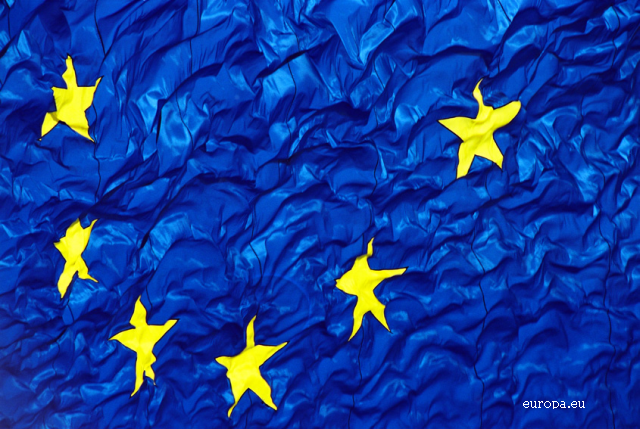The EU, whereto?
German Chancellor Angela Merkel and French President Francois Hollande identify the major threats to Europes stability.

Corina Cristea, 17.02.2017, 13:04
The rise of populism in Europe, the crisis caused by Brexit, the risk that the new administration in Washington might break the trade agreements with Europeans have all been identified by German Chancellor Angela Merkel and the French President Francois Hollande as major threats to Europe’s stability. According to the two leaders, these challenges can only be dealt with if member states, European institutions, the main economic actors and civil society cooperate with a view to ensuring the stability and prosperity of European citizens.
In this equation, the financial part plays a critical role. The economic and monetary union requires the coordination of the member state’s economic and fiscal policies, a common monetary policy and a single European currency: the Euro. But, although all the 28 EU members are part of the economic union, some of them took integration further by the adoption of the single currency, forming the so-called Euro Zone, while others, such as Great Britain, Denmark and Sweden, did not agree with adopting the Euro.
At the same time, the countries that are now in the process of adopting the Euro are not giving any signals that they may be willing to speed up the process. The crisis made the single currency’s flaws surface, says economist Joseph E. Stiglitz, a Nobel Prize winner. Stiglitz shows the way in which the current structure actually leads to divergence rather than convergence. According to him this is the direct result of the challenges posed by the existence of a diverse group of countries that adopted the euro, in the context in which economic integration is much behind political integration.
From an economic point of view, prospects seem positive. According to the winter forecast made public these days by the European Commission, essentially all EU economies are expected to grow between 2017 and 2018 for the first time in 9 years. According to Pierre Moscovici, European Commissioner for Economic and Financial Affairs, Taxation and Customs, the European economy proved its resilience in the face of the many shocks it experienced in 2016. Economic growth has been maintained while the level of unemployment and deficits has been on a downward trend.
However, given the high level of uncertainty, it is more important to use all political instruments to support economic growth, Pierre Moscovici added: “In 2016 the EU’s GDP increased by 1.9% and will continue to increase by 1.8% both in 2017 and 2018. Growth in the Euro zone will be 1.6% in 2017 and 1.8% in 2018, after in 2016 it stood at 1.7%. This means that this is the 5th year in a row when the EU economy reported growth, despite the many challenges we have all faced. And I mean both internal and international challenges. Last year, the EU had to cope with the lowest pace of activity growth and world trade in the past 7 years. And it also had to face geopolitical tension and of course terrorist attacks that occurred both on our territory and in other parts of the world. Therefore, the context is difficult and, moreover, we are facing new challenges such as the Britons’ vote to exit the EU and the European citizens’ discontent with or major tension regarding globalization. This has become visible following certain choices that will have an impact on world economy. And let’s not forget the fragility of the banking system, which we also have to cope with.”
The EU’s cohesion seems to be affected both by the decision of Great Britain to leave the EU and by other decisions such as that of imposing refugee quotas, analysts say. Press commentators have frequently written about the likelihood of other countries leaving the community bloc. And in the 2017 election year this seems to be a campaign topic for many parties.
MEP Iuliu Winkler, the vice-president of the European Parliaments Commitee on International Trade explains: “The anti-crisis measures have opened the doors to populism, have opened doors and deepened already existing gaps. These gaps were not that deep in the past, and I’m referring to the gaps between the East and the West, the North and the South in terms of the culture of work, budgetary and financial discipline as well as in terms of eastern European societies’ reaction, given that these countries lived on the wrong side of the Iron Curtain for 50 years. And all these things worsened as two years ago they received a bigger blow from the migration crisis and all the other crises.”
Iuliu Winkler recalls that 2016 was marked by two unexpected events, the result of the referendum on Brexit and of the presidential election in the US. Moreover, he added that in a few weeks’ time we would see the British PM Theresa May announce the start of Brexit procedures, big changes are in store, therefore it is hard to say that 2017 will be a quiet year.






























